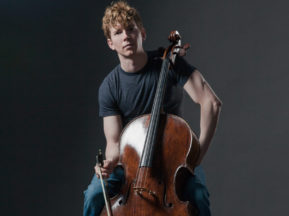ProtoStar is honored to commission several music compositions by distinguished Professor Lei Liang, winner of the presitgious Grawemeyer Award for Music Composition in 2021 for his composition A Thousand Mountains, A Million Streams.[1] The Grawemeyer Award is popularly known as the Nobel Prize in Music Composition. The commissioned pieces are: (1) Book of Time I; (2) Touching with Sound; and (3) Madrigal Mongolia.
The scores will be published by Schott Music, which is the exclusive publisher for Professor Liang’s music. Founded in 1770, this German-based publishing house is one of the oldest and most prestigious music publishers in the world.[2] It was the original publisher of many of Beethoven’s works, as well as those of other important composers, such as Richard Wagner and Robert Schumann.
1. Book of Time I
On the surface, Book of Time may simply be a 20-minute work for solo piano. But it is much more than that. Professor Liang describes the Composition this way:
Book of Time is about listening to the earth’s own harmonies hidden in rocks. My team at Lei Lab developed the idea and technology to use X-ray fluorescence analysis of minerals to trace a series of data points delineating their elemental peaks. These data points are then transformed through software into harmonies that we can hear. The Composition is based on the first prototype of harmonies created by my team. Each phrase of the music consists of notes from one mineral.
Composing this work is to listen to how the earth’s minerals sing.
The world premiere will take place in 2024. The proposed pianist for the word premiere is Han Chen. Gramophone hailed this young pianist from Taiwan as “one of few pianists who handles both gnarly contemporary scores and over-the-top Romantic showpieces with equal authority and style.”[3]
Thereafter, there could be additional performances and recordings of the Composition.
2. Touching with Sound
Like the prior commission, Book of Time, this Composition is part of a series of fascinating initiatives to use cutting-edge technologies to transform nature’s sounds into harmonies that human beings can hear. In this case, Touching with Sound uses recordings of sonar signals emitted deep in the ocean by sea animals, such as Beluga whales, to enable them to “see and touch” their environment.
As described by Professor Liang, Touching with Sound
was inspired by a moment when I listened to the recordings of sonar signals with oceanographers John Hildebrand and Joshua Jones. As I enhanced the reverberance and slowed down the pacing, their eyes lit up and they marveled, ‘listen to the echoes!’ Echolocation is both seeing and touching with sound. It gives the animals magical eyes and hands to illuminate and touch their surroundings. This composition is a study of echolocation.
The solo piano composition will have an estimated duration of 7-10 minutes.
Another unique aspect of this commission is that the score will be available in digital form for a limited period to allow various pianists to download the piece and perform it at different venues.
3. Madrigal Mongolia
ProtoStar has previously explored the ever-evolving concept and differing interpretations of “home” as part of the ProtoStar Innovative Seres. In April 2022, two months after the invasion of Ukraine by Russia, we sponsored the program “Home Within,” which reinterpreted the meaning of “home” in the context of being displaced during the ongoing civil war in Syria. The program featured original music by Syrian composer and clarinetist Kinan Azmeh and drawings by Surian Armenian visual artist Kevork Mourad. In May 2022, the ProtoStar Innovative Series showcased the Spektral Quartet’s “Letters from Home” – an interactive program that included encouraging the audience to write “home” to one’s family and friends.
Madrigal Mongolia takes a slightly different approach and explores the concept of “home” from a cultural and spiritual perspective. In Professor Liang’s own words:
Over centuries, songs from various cultures provide a deep connection between us and our home. This new composition explores our home in a new way. It sings of cultural heritage and spiritual home, and explores new ways to hear our home in its natural environment. Ultimately, the music takes us on a journey to experience what “home” means to us today.
This piece was influenced by, and delves further into, Mongolian music. It has a performance time of approximately 18-20 minutes.
* * *
[1] Professor Liang’s complete biography can be found on UC San Diego’s website.



Leave a Reply
Your email is safe with us.